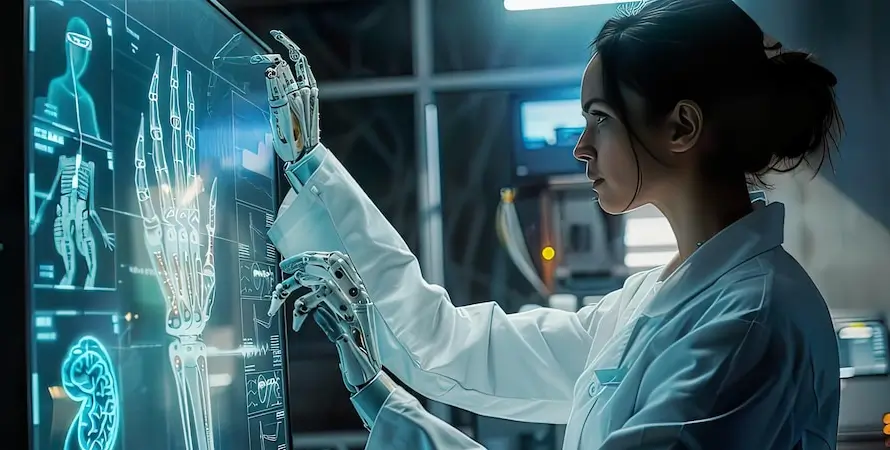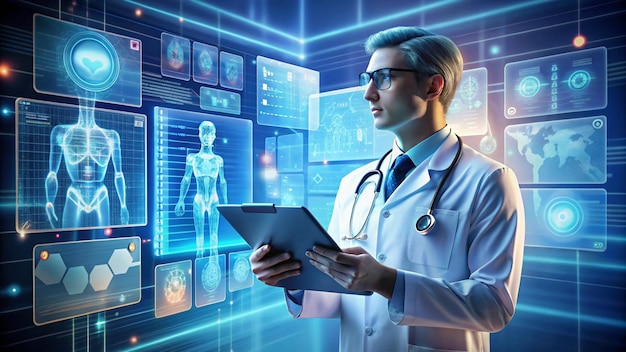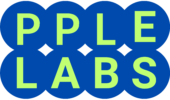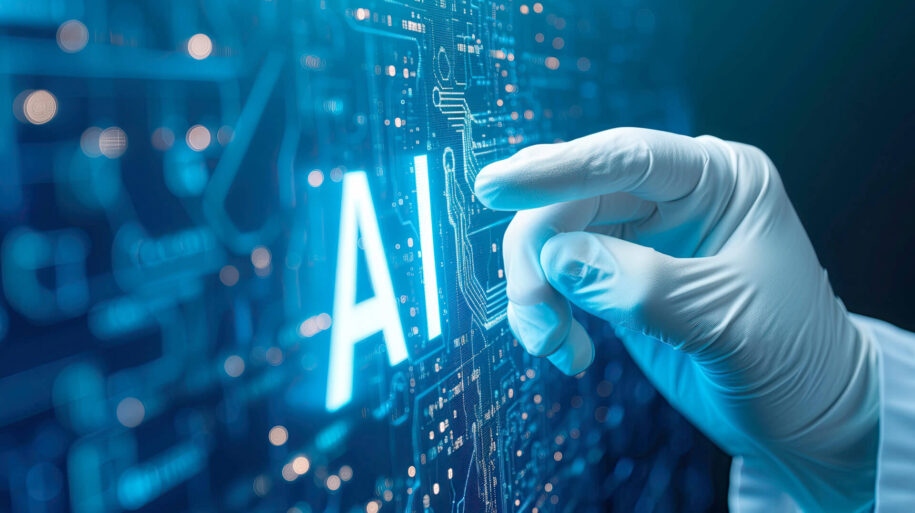Artificial intelligence (AI) is no longer a far-off dream; it’s revolutionizing healthcare and shaping the future of medicine. From improving diagnoses to streamlining hospital operations, AI-powered solutions are addressing long-standing challenges in the healthcare sector. Let’s explore how AI is transforming medical practices and why it’s a game-changer.
Why AI Is Transforming Healthcare
Healthcare has always been a field where time, accuracy, and efficiency matter most. AI brings all three to the table by harnessing vast amounts of data to deliver faster, more precise results. Imagine a system that can analyze thousands of medical images in seconds or predict a patient’s risk of developing a disease long before symptoms appear. That’s what AI in healthcare offers—a smarter, data-driven approach to medicine.
The Problems with Traditional Healthcare
Let’s face it: traditional healthcare systems are far from perfect. Delayed diagnoses, human error, and administrative overload are common issues that affect both patients and providers. For example, doctors often spend more time on paperwork than patient care, which leads to inefficiencies and burnout. In underserved areas, the lack of access to specialists can make even basic medical care feel out of reach.
These challenges don’t just inconvenience people—they cost lives. According to studies, diagnostic errors contribute to roughly 10% of patient deaths. Clearly, a better approach is needed.

How AI-Powered Solutions Are Changing Medical Practices
AI is stepping in to address these problems head-on. Let’s break down a few key areas where AI is making a real impact:
1. Diagnosing Diseases Faster and More Accurately
AI algorithms are revolutionizing diagnostics by analyzing medical images and patient data with incredible precision. Tools like AI-powered imaging systems can detect conditions like cancer or heart disease at their earliest stages, often outperforming human specialists. This means faster treatment and better outcomes for patients.
2. Streamlining Administrative Tasks
From scheduling appointments to managing medical records, AI can automate routine administrative work. Chatbots, for instance, can handle patient inquiries, while robotic systems take care of billing and insurance claims. This reduces the workload for healthcare staff and lets them focus on what matters most—caring for patients.
3. Enabling Personalized Medicine
AI doesn’t just treat diseases; it tailors solutions to individual patients. By analyzing genetic, environmental, and lifestyle data, AI can recommend customized treatments. This level of personalization boosts treatment effectiveness and patient satisfaction.

Real-Life Success Stories
The impact of AI in healthcare isn’t just theoretical—it’s happening now. In one study, hospitals using AI-powered imaging tools reduced diagnostic errors by over 20%. Meanwhile, facilities that implemented AI for scheduling and resource management reported a 30% increase in operational efficiency. These numbers aren’t just impressive; they show that AI is delivering tangible results.
Benefits That Go Beyond the Numbers
The advantages of AI go far beyond improved efficiency. For patients, it means early diagnoses and more effective treatments. For healthcare providers, it means reduced costs and a lighter workload. And for the industry as a whole, it means a future where care is more accessible and equitable.
Take, for example, rural areas where specialist care is hard to come by. AI-powered telemedicine tools are bridging the gap, offering remote consultations and diagnostics that were previously impossible. This is healthcare innovation at its best—bringing care to those who need it most.
What’s Holding AI Back?
Of course, it’s not all smooth sailing. Adopting AI in healthcare comes with challenges like data privacy concerns, high costs, and the need to train staff on new technologies. However, these obstacles are far from insurmountable. By investing in secure systems and education, healthcare providers can unlock AI’s full potential.
The Future of AI in Medicine
Looking ahead, the possibilities for AI in healthcare are endless. Predictive analytics could help prevent diseases before they occur, while wearable devices could continuously monitor patients and alert doctors to potential issues in real-time. These innovations aren’t just science fiction—they’re the next steps in a rapidly evolving field.

Get a Free Consultation with Ekene
Ready to take your business to the next level? Connect with Ekene, with over a decade of experience and expertise in business development, digital marketing, UI/UX design, and web development.
In your free session, you’ll gain:
- Tailored Strategies to boost your digital presence and revenue.
- Expert Insights for impactful websites and scalable solutions.
- Holistic Guidance from branding to marketing.
Don’t miss this opportunity to transform your business.
Book your free consultation today!
Or connect with Ekene directly on LinkedIn: Ekene Abana.
Conclusion
AI is transforming healthcare in ways we once thought impossible. From diagnosing diseases to streamlining operations, its impact is profound and far-reaching. While challenges remain, the benefits of AI-powered solutions make it clear that this technology is here to stay. The healthcare industry is on the brink of a revolution, and AI is leading the way.
FAQs
1. How does AI improve diagnoses?
AI analyzes medical data with precision, reducing errors and identifying conditions earlier than traditional methods.
2. Can AI replace doctors?
Not at all. AI is a tool that complements doctors, helping them make better decisions and work more efficiently.
3. Is AI expensive to implement in hospitals?
Initial costs can be high, but the long-term savings from increased efficiency and better outcomes often outweigh these expenses.
4. How does AI help patients in rural areas?
AI-powered telemedicine tools connect patients to specialists remotely, improving access to quality care.
5. What’s next for AI in healthcare?
Future innovations include predictive analytics, wearable health monitors, and even more advanced personalized medicine.


Leave a Reply